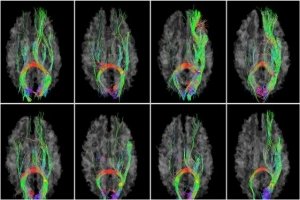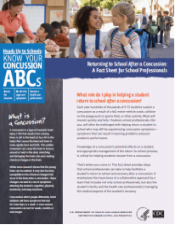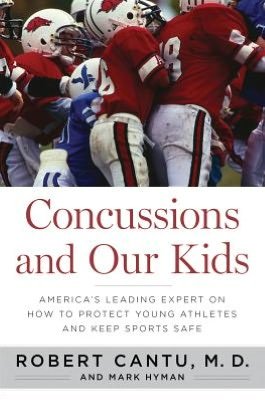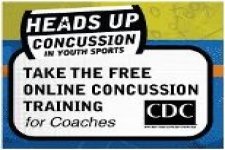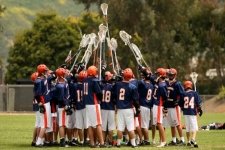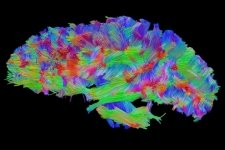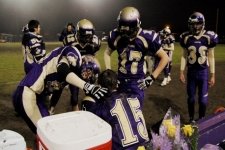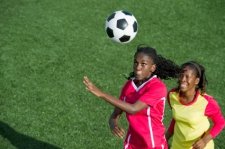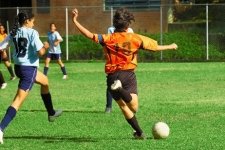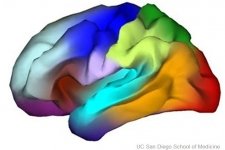Sub-concussive impacts may affect learning
- Created on Sunday, 20 May 2012 11:17
- Last Updated on 16.01.2013
- Published Date
MINNEAPOLIS – A new study suggests that head impacts experienced during contact sports such as football and hockey may worsen some college athletes’ ability to acquire new information. The research is published in the May 16, 2012, online issue of Neurology®, the medical journal of the American Academy of Neurology.
The study involved college athletes at three Division I schools and compared 214 athletes in contact sports to 45 athletes in non-contact sports such as track, crew and Nordic skiing at the beginning and at the end of their seasons. The contact sport athletes wore special helmets that recorded the acceleration speed and other data at the time of any head impact.
The contact sport athletes experienced an average of 469 head impacts during the season. Athletes were not included in the study if they were diagnosed with a concussion during the season.
All of the athletes took tests of thinking and memory skills before and after the season. A total of 45 contact sport athletes and 55 non-contact sport athletes from one of the schools also took an additional set of tests of concentration, working memory and other skills.

“The good news is that overall there were few differences in the test results between the athletes in contact sports and the athletes in non-contact sports,” said study author Thomas W. McAllister, MD, of The Geisel School of Medicine at Dartmouth in Lebanon, N.H. “But we did find that a higher percentage of the contact sport athletes had lower scores than would have been predicted after the season on a measure of new learning than the non-contact sport athletes.”
A total of 22 percent of the contact sport athletes performed worse than expected on the test of new learning, compared to four percent of the non-contact sport athletes.
McAllister noted that the study did not find differences in test results between the two groups of athletes at the beginning of the season, suggesting that the cumulative head impacts that contact athletes had incurred over many previous seasons did not result in reduced thinking and memory skills in the overall group.
“These results are somewhat reassuring, given the recent heightened concern about the potential negative effects of these sports,” he said. “Nevertheless, the findings do suggest that repetitive head impacts may have a negative effect on some athletes.”
McAllister said it’s possible that some people may be genetically more sensitive to head impacts.
The study was supported by the National Institutes of Health and the National Operating Committee on Standards for Athletic Equipment.
Source: American Academy of Neurology -- May 16, 2012
Questions/comments? contact Jean Rickerson at This email address is being protected from spambots. You need JavaScript enabled to view it.
Photo courtesy of JamieLWilliams (c)2006 CreativeCommons.com
Brain Health
It is rare for a sports-related concussions to result in a more serious injury such as a skull fracture or hematoma. Nonetheless, it pays to be aware that catastrpohic injuries do sometimes occur as ...
read more...-
CT scans may increase brain cancer risk
Children and young adults scanned multiple times by computed tomography (CT), a commonly used dia...
-
Sub-concussive impacts may affect learning
MINNEAPOLIS – A new study suggests that head impacts experienced during contact sports such as ...
-
Physical activity boosts learning
INDIANAPOLIS – School administrators looking to restructure the academic schedule should consid...




Neuroscience
Athens, Ga.- University of Georgia researchers have developed a map of the human brain that shows great promise as a new guide to the inner workings of the body's most complex and critical organ.
...
read more...-
Does CTE infect neuron to neuron?
NFL Hall of Famer "Iron Mike" Webster's life ended in 2002 when he suffered a heart attack at age...
-
Progesterone seems to protect neurons after injury
It is not yet known why girls suffer concussions at a higher rate than boys. The most prevalent...
-
Amino acids may restore concussion's chemical imbalance
Concussions are often called the "invisible" injury because they are usually not detectable by t...
Resources
- School professionals play an important role in the health of all students. Recognizing the signs and symptoms of concussion is important, as is managing their return to school ...
- CDC's Concussion Training for Clinicians
-
Concussion Education Video Programs - Free and Easy
Parents, athletes, coaches and medical professionals have access to concussion education created...
-
New concussion guidelines for team physicians
INDIANAPOLIS – Team physicians who assess and treat athletes suspected of concussion have new ...
quick links
Latest News
Concussions Occur...
...in Any Sport
REMOVE athlete from play
REFER to medical provider
REST no sports, no texting/TV
RETURN only with doctor's OK
Source: Children's Hospital Boston, Sports Concussion Clinic













